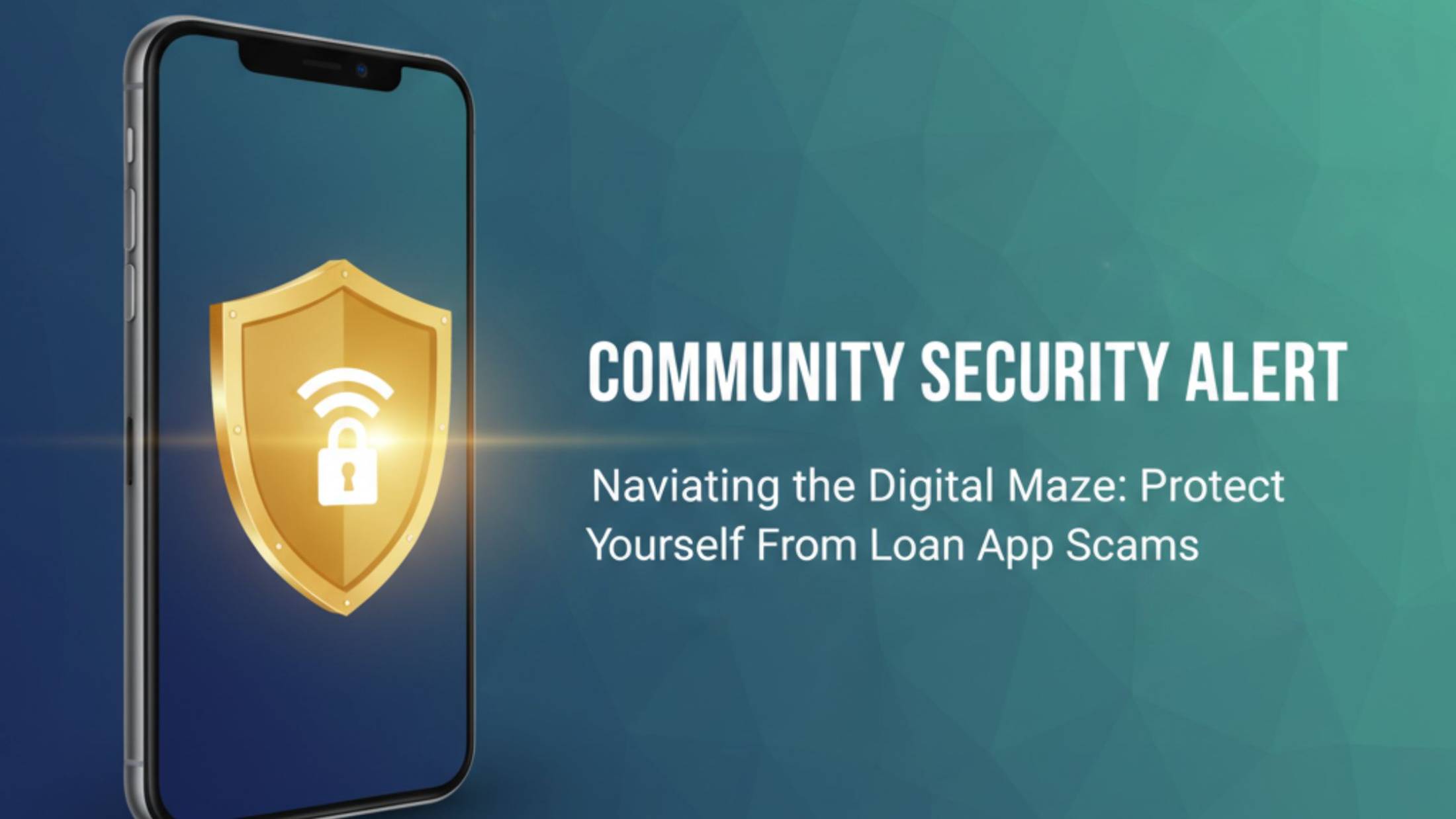Cybercrime · 6 min read
Biggest Scams in India: How Digital Fraudsters Are Targeting the Middle Class
India is witnessing a massive rise in digital scams — from fake police calls to job offers that vanish overnight. Learn how scammers trap even educated individuals and retirees, and discover how to protect yourself from these modern-day financial crimes.
.V60mxlQ2.jpg)
Imagine your father receiving a random video call from someone dressed as a police officer, flashing an ID card and saying, “Your name is involved in a money laundering case.”
He’s ordered not to step out, not to talk to anyone, and within days, all his savings are gone.
This isn’t a movie scene , it’s India’s new digital reality.
Recently, a retired couple in Chandigarh lost over ₹3 crore in such a “digital arrest” scam. And that’s not an isolated story. Reports show that digital frauds across India have reached multi-thousand crore levels, with scams now just one click, call, or WhatsApp message away.
Let’s uncover how these scams operate, who’s falling for them, and most importantly, how you can stay safe.
The Rise of New-Age Scams
Gone are the days of old chit funds or lottery frauds. Today’s scams start with a simple WhatsApp or Telegram message — sometimes a “police” video call, sometimes an irresistible “work-from-home” offer promising ₹5 lakh a month.
The scale is shocking.
According to RBI data (PolicyCircle, Jan 2025), in just the first 10 months of FY25, over 24 lakh digital payment frauds were reported, with a total value of ₹4,245 crore.
The New Indian Express (May 2025) reports that total banking frauds in FY25 crossed ₹36,000 crore, three times higher than the previous year.
Let’s look at what’s behind these numbers:
● In Himachal Pradesh, a retired Colonel and his wife were conned of ₹49 lakh after fake “law enforcement officers” claimed their Aadhaar details were misused.
● In Telangana, a 63-year-old retired teacher lost ₹19 lakh after being told his bank account was under investigation for money laundering.
In both cases, the scammers already had personal information — Aadhaar, address, even bank details. Once fear kicked in, panic did the rest.
These examples prove one thing , scams don’t just target the uneducated. Retired officers, teachers, professionals , anyone can fall prey because the first thing scammers attack is your mind, not your money.
How These Scams Actually Work
Every scam may look different, but the playbook is the same:
• Create trust
• Trigger panic or greed
• Trap the victim in a loop
Digital Arrest Scam
You get a video call from a fake “officer” who says your name is linked to a crime. They show fake IDs and isolate you at home, claiming you’re “digitally arrested.” In fear, victims end up transferring their life savings.
(Reported in multiple Himachal and Chandigarh cases , NDTV, May 2025)Job Scams
A “recruiter” messages you on WhatsApp offering part-time work like rating Amazon products. You even earn ₹200–₹300 initially. Once trust builds, they ask for deposits to access “bigger tasks.” People have lost lakhs before realizing the recruiter and website have vanished.Fake Trading Apps
Instagram ads show influencers flaunting luxury lifestyles, inviting you to invest ₹1,000 and “earn daily returns.” Apps display fake profits until you try to withdraw , then come the excuses: “KYC pending,” “processing fee required.” The final result — total disappearance.Telegram Stock Tip Groups
Fake “SEBI-registered” analysts sell premium memberships promising “100% accurate tips.” After losses, victims are blocked. The scam ends, but your money doesn’t return.
The structure never changes , build trust, create emotion, and drain funds before you even realize what’s happening.
Why the Middle Class Falls for These Scams
It’s easy to assume only the uneducated fall for scams, but the reality is the opposite. Educated, middle-class Indians are the most frequent victims. Here’s why:
Fear of Authority
The word “police” or “CBI” is enough to create panic. A retired teacher transferred ₹19 lakh simply because fake officers claimed his account was under investigation. He feared “defamation” more than verification. Even influencers like Ankush Bahuguna fell prey to “digital arrest” scams , proving that no one is immune, not even tech-savvy professionals.Desperation for Extra Income
The middle class faces constant financial pressure — EMIs, school fees, bills. So when a message says “Earn ₹5,000 daily from home,” it sounds like a blessing. Scammers use this hope and greed to pull victims deeper until every rupee is gone.Technology Gap
Older adults easily trust messages asking for OTPs or to “download verification apps.” That one innocent click becomes the scammer’s entry point.
In short, scammers exploit three emotions , fear, hope, and greed and weave them into a perfect trap.
The Bigger Problem
These scams are not just personal failures , they expose deep systemic loopholes.
Easy Access to Tools
Fake SIM cards, cheap smartphones, and social media have created a breeding ground for scam networks. Towns like Jamtara have evolved into digital scam hubs.UPI Misuse
UPI has made payments effortless, but also made frauds lightning-fast. RBI data shows ₹36,000 crore in banking frauds in FY25 — and that’s just what was reported.Weak Enforcement
Even when cyber police bust fake call centres in Noida or Gurgaon, new ones pop up within weeks. Money vanishes through crypto wallets and mule accounts, making recovery nearly impossible.
Worse , some victims are forced to become scammers themselves. Fake recruiters lure people with job offers, then make them run scam calls under threat. Many Indians trapped in Myanmar and Thailand were forced into this cybercrime industry.
The consequences aren’t just financial , victims suffer deep mental trauma and shame, often avoiding police reports out of fear of judgment.
How to Protect Yourself
Scams evolve, but red flags stay the same. Here’s what every Indian must remember:
No police, CBI, or ED ever demands money online. Report such calls immediately at 1930 (Cybercrime Helpline).
Never share OTPs or click suspicious links. Your bank will never ask for them.
No genuine job requires deposits. If someone asks for “training fees” or “security deposit,” it’s a scam.
Avoid trading tips with “guaranteed returns.” As per SEBI, such claims are illegal.
The RBI and MeitY have launched the Digital India Trust Helpline (1930) to freeze fraudulent transactions quickly. Even popular web series like TVF Panchayat now feature scam awareness campaigns — proving how serious this crisis has become.
But beyond government measures, the biggest shield is individual awareness. Remember this simple rule:
Pause. Verify. Act.
Don’t panic. Take a moment to verify before acting — because panic is the scammer’s strongest weapon.
Final Word
At lawyerPanel.org, our mission is to empower people through awareness. Whether it’s protecting you from fraud or helping you handle credit card and loan issues, our IIT–IIM–founded team has helped 35,000+ individuals find relief from financial distress.
If you or someone you know is facing harassment from recovery agents or struggling with overdue loans, visit lawyerPanel.org today and get professional legal help.
Because every scam can be stopped — with knowledge, awareness, and the courage to act.
Stay alert. Stay informed. Stay safe.
Disclaimer
The information shared in this blog is for general awareness only. Every individual’s situation may differ, and the actual process or outcome can vary based on personal and legal circumstances.



